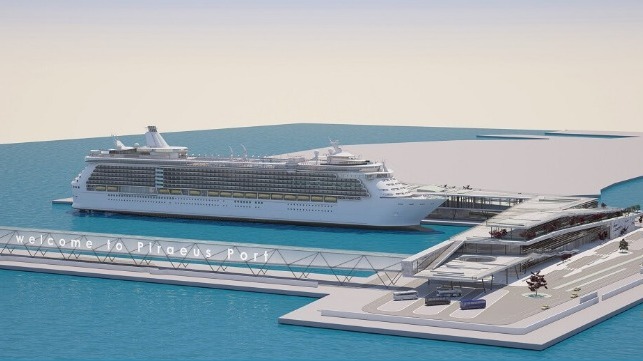Greek Court Halts COSCO's Expansion at Piraeus Port

One of China’s most prominent Belt and Road Initiative projects in Europe has suffered a setback following a ruling by Greece's highest administrative court, the Council of State. On Monday, the court ruled that the previous government decisions on the expansion of Piraeus Port were illegal because the authorities failed to conduct an environmental assessment as required by National and European Union regulations.
In 2008, the New Democracy Party, which then was the ruling party, approved a $4.7 billion worth of a deal for the Piraeus Port Authority (OLP) to grant Chinese a 35-year concession.
By last year, COSCO controlled a 67 percent stake in the Piraeus Port Authority. As part of the concession agreement, COSCO also committed to making eleven mandatory investments worth $325 million.
These include the expansion of the passenger port of Piraeus, building another passenger terminal and four new hotel complexes. In addition, COSCO promised to expand the vehicle import terminal, build a five-story parking lot and construct 20 acres of new warehouses.
However, these developments caused tension with the nearby community. Four years ago, local residents launched a movement called No Port in Piraeus to block the planned projects.
The court vindicated their claims this week, blocking the expansion of the passenger terminal and the construction of a new one.
“The project for the new port of Piraeus, which started illegally two years ago without being preceded by a strategic Environmental Impact Study, is cancelled. COSCO’s plans for expansion and new car piers are also canceled by the same decision,” Dimitra Vini, an Environmental Campaigner, told Balkan Investigative Reporting Network (BIRN).

that matters most
Get the latest maritime news delivered to your inbox daily.
An investigative report last year by Greek journalist Myrto Boutsi for Reporters United found that COSCO dumped contaminated sludge from port dredging in nearby fishing grounds in the Saronic Gulf, which is crisscrossed daily by the fishing boats that supply restaurants in Athens.
This adds to the list of BRI projects that have come under criticism for failing environmental standards. A recent report by the London-based watchdog Business and Human Rights Resource Centre (BHRRC) concluded that some BRI projects ignore concerns by people they directly affect, and that they lack transparency on their environmental impact.
